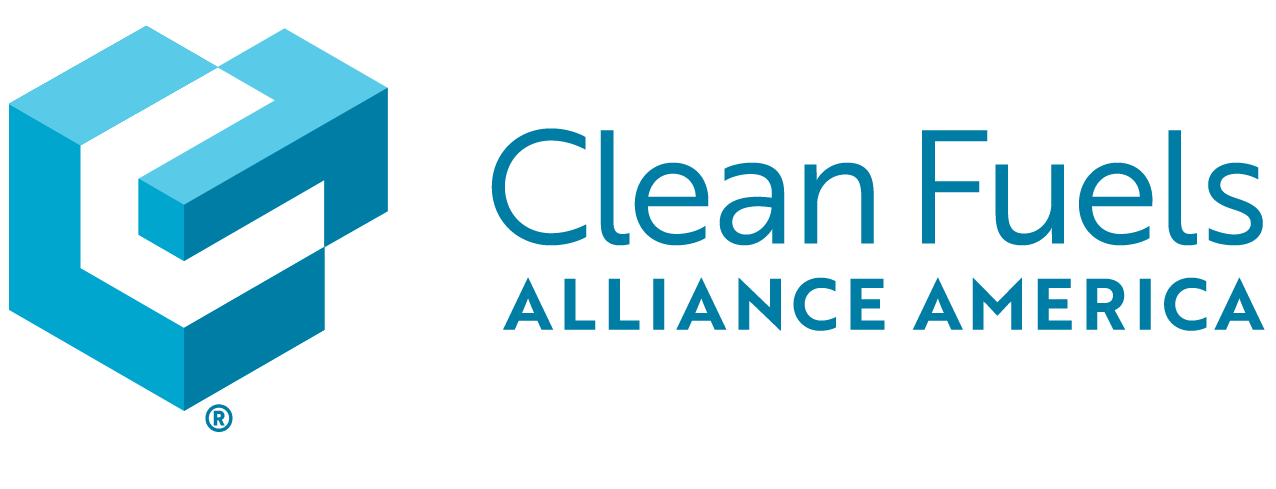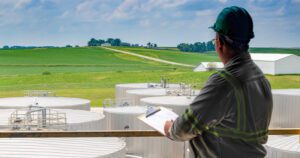By Scott Fenwick, Technical Director at Clean Fuels Alliance America
Published in Biobased Diesel™ | Winter Issue
Clean Fuels Alliance America’s technical program made significant strides in 2024 strengthening the industry’s position in advancing biobased diesel and enhancing biodiesel quality.
Reflecting the global shift toward decarbonization, the ASTM D6751 standard, which sets the specifications for biodiesel fuel blendstock (B100) for middle distillate fuels, underwent revisions aligning with the growing demand for more sustainable and efficient fuels that can meet the expected performance metrics of original-equipment manufacturers (OEMs) and consumers. The updated specification now includes tighter adjustments to the allowable limits for key parameters such as metals content, ensuring that higher biodiesel blends can meet the stringent requirements of modern engines and aftertreatment systems.
Additionally, the seventh annual “Assessment of BQ-9000 Biodiesel Properties” report revealed that biodiesel quality continues to surpass ASTM requirements. This ongoing quality-assurance effort is critical as the industry seeks broader acceptance of biodiesel across various sectors.
Clean Fuels is championing groundbreaking opportunities for biodiesel producers to expand into emerging markets, particularly in rail, marine and home-heating applications. Recent advancements, such as Wabtec’s approval of B20 biodiesel blends for locomotive engines and the adoption of the ISO 8217:2024 specification for marine fuels, signify major milestones.
The heating-oil industry is closer to reaching its goal of net-zero emissions by 2050 with the release of new protocols by Underwriters Laboratories and certifications for equipment to operate on biodiesel blends, up to B100. Several distributors have announced sales of B40 to B50 blends to their customers, touting biodiesel as a better alternative to traditional heating oil.
The rail industry has been under increasing pressure to reduce its environmental footprint. Conventional diesel-powered locomotives are a substantial source of greenhouse-gas (GHG) emissions, and cleaner alternatives like biodiesel and renewable diesel are gaining traction as viable solutions.
Wabtec, a global leader in freight and passenger rail technology, conducted extensive testing to ensure that B20 blends meet performance, reliability and emissions standards. This approval not only provides a cleaner alternative for rail operators but also demonstrates that biodiesel can integrate into existing infrastructure. Wabtec’s approval of B20 is a game-changer and opens up a substantial market for biodiesel producers. Railroads are now equipped with a proven solution to decarbonize their operations while maintaining performance.
To date, four out of the six Class I railroads have joined Clean Fuels’ membership, working closely to ensure the smooth adoption and performance of these higher blends. Ongoing efforts with agricultural groups continue to bolster the supply chain for consistent and reliable access to high-quality renewable fuels.
Meanwhile, the marine industry faces unique challenges in transitioning to biobased diesel. Stringent regulations from organizations like the International Maritime Organization are pushing vessels toward low-carbon alternatives. Biodiesel’s compatibility with existing engines presents a compelling option.
The introduction of the ISO 8217:2024 specification earlier this year is a transformative gain for the marine industry. This updated international standard allows for the use of up to B100 in nearly every grade of marine fuel applications, provided the fuel meets stringent quality and performance criteria. The Clean Fuels technical team has been instrumental in passing this specification, working alongside industry stakeholders to ensure biodiesel’s inclusion as a recognized alternative to marine diesel fuel.
These new markets for biodiesel are creating significant economic benefits. For producers, expanded access to rail and marine translates into increased demand and a more diversified customer base. This, in turn, supports local economies, particularly in agricultural regions where domestic soybean oil remains a primary feedstock.
While the opportunities are vast, challenges remain. Education and awareness are critical to ensuring that users fully understand the benefits and operational requirements of biodiesel. Clean Fuels and its members are addressing these issues through extensive outreach and collaboration with OEMs while also working to address supply-chain logistics to ensure the fuels are readily available.
As the industry adapts to a shift in federal tax policy in the New Year, one thing is clear: Biodiesel is no longer a niche fuel. It’s a mainstream solution that’s driving real-world progress in some of the most challenging sectors to decarbonize. Enabling the use of higher blends in emerging markets like rail, marine and home-heating applications unlocks a massive opportunity for clean fuels to contribute to decarbonization efforts on a global scale.
ABOUT CLEAN FUELS ALLIANCE AMERICA
Made from an increasingly diverse mix of resources such as recycled cooking oil, soybean oil, and animal fats, the clean fuels industry is a proven, integral part of America’s clean energy future. Clean Fuels Alliance America is the U.S. trade association representing the entire biodiesel, renewable diesel and sustainable aviation fuel supply chain, including producers, feedstock suppliers and fuel distributors. Clean Fuels receives funding from a broad mix of private companies and associations, including the United Soybean Board and state checkoff organizations.




